|
Books Should Be Free Loyal Books Free Public Domain Audiobooks & eBook Downloads |
|
|
Books Should Be Free Loyal Books Free Public Domain Audiobooks & eBook Downloads |
|
Top Authors |
|---|
|
Book type:
Sort by:
|
By: Frank R. Stockton (1834-1902) | |
|---|---|
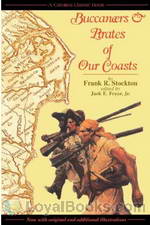 Buccaneers and Pirates of Our Coasts
Buccaneers and Pirates of Our Coasts
Buccaneers and Pirates of our Coasts is a non-fiction, rolicking story of the origins of piracy and of the famous pirates of the coasts of the United States. The stories don’t cast pirates in the glowing light of modern day renditions – in Stockton’s stories, pirates are bad guys! – but the dramatic style makes them good fun to read, anyway! (Summary by Sibella Denton) | |
By: Melvin Powers (author still living) | |
|---|---|
 A Practical Guide to Self-Hypnosis
A Practical Guide to Self-Hypnosis
Published in 1961, A Practical Guide to Self-Hypnosis by Melvin Powers is a self help book that aims to bring the basic techniques of hypnosis to the ordinary reader and harness its legendary powers to one's own advantage. In fact, all forms of hypnosis are essentially self-hypnosis since the process does not work without the overt or covert cooperation of the person who is being hypnotized. The main difference is that all other forms of hypnosis require the guidance of a therapist or hypnotist while the one suggested here is a self-guided procedure... | |
By: Anatole France (1844-1924) | |
|---|---|
 Penguin Island
Penguin Island
An old monk is tricked by the Devil into undertaking a voyage to a remote island to save the souls of thousands who live there. He arrives on the island which is actually a desolate one, inhabited only by colonies of millions of penguins. The old monk whose eyesight and hearing are almost nonexistent, mistakes them for humans and begins baptizing them. In Heaven, God finds Himself in a dilemma; the old monk's unwavering faith compels him to regard the baptisms as genuine. However, in Christian theology, only humans have souls – hence God is forced to grant the thousands of newly baptized penguins with souls! This is the beginning of their journey into “civilization... | |
 Thais
Thais
The fourth century ascetic Paphnuce, journeys from his remote desert hermitage to urban Alexandria determined to locate the stunningly beautiful and libertine actress, Thais. He earnestly desires that she convert to Christianity. Gaining an audience by deception, the hermit passionately speaks to the actress of eternity. Remarkably, Thais repents and retires to a convent for the rest of her days. The hermit however, cannot rid his mind of her charms, not even with the help of the most severe austerities. After years of anguish the monk learns of Thais' immanent demise and hastens to her side. There he confesses the unspeakable. | |
 Gods are Athirst
Gods are Athirst
The Gods Are Athirst (French: Les dieux ont soif, also translated as The Gods Are Thirsty or The Gods Will Have Blood) is a 1912 novel by Anatole France. The story follows the young Parisian painter Évariste Gamelin, who rises speedily from his humble beginnings to a member of the Revolutionary Tribunal in the second and third year of the French Revolution. In brilliant prose, Anatole France describes how Évariste's idealism turns into fanaticism, and he allows more and more heads to roll and blood to flow, placing himself and those he loves into ever greater danger. | |
 Revolt of the Angels
Revolt of the Angels
Anatole France, in his satirical and allegorical fashion, weaves a tale of fantasy which finds a mischievous guardian angel stealing books from his earthly charge, who happens to be an archbishop in possession of a plethora of literature, mostly theological in nature. After voracious reading and then becoming a "fallen" angel, he decides to search for and recruit other "fallen" angels who devise a plan to attempt an overthrow of the rule which had set their fate, realizing that revolt is necessary and inevitable... | |
By: Max Brand (1892-1944) | |
|---|---|
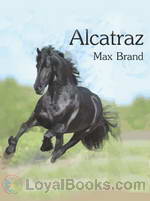 Alcatraz
Alcatraz
This is a story of a wild horse who many said could not be caught or broken, and the man who set out to prove them wrong. | |
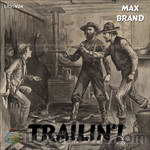 Trailin'!
Trailin'!
“Max Brand”, the most used pseudonym of Frederick Schiller Faust (1892-1944), is best known today for his western fiction. Faust began in the early twentieth century selling his stories to the pulp magazines, writing in many genres under numerous pseudonyms. He is probably best known as the creator of the character Destry. His novel Destry Rides Again has been filmed several times, most notably the 1939 version starring James Stewart and Marlene Dietrich. Also his character Dr. Kildare which was popularized in film and on television earned him a fortune... | |
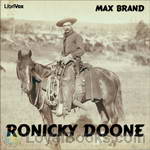 Ronicky Doone
Ronicky Doone
Frederick Schiller Faust (1892-1944), is best known today for his western fiction. Faust was born in Seattle, Washington and at an early age moved with his parents to the San Joaquin Valley in California where he worked as a ranchhand. After a failed attempt to enlist in the Great War in 1917 and with the help of Mark Twain’s sister he met Robert Hobart Davis, editor of All-Story Weekly and became a regular contributor writting under his most used pseudonym “Max Brand”. He wrote in many genres during his career and produced more than 300 western novels and stories... | |
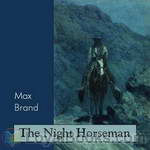 The Night Horseman
The Night Horseman
A man, a dog, and a horse. The call of the wild geese. A very smart doctor from the east who finds there is a lot to learn from these desert people. A woman loved by three men. A gunslinger who has a debt to settle. Max Brand brings them all together in another one of his over three hundred exciting western tales. Brand is not your typical western writer. | |
 The Untamed
The Untamed
Whistlin' Dan Berry is one of the most interesting characters in Western fiction. With uncanny abilities he controls a wild stallion, appropriately named Satan, and a ferocious wolf dog, Black Bart. Easy going, Berry proves absolutely unforgiving when physically assaulted by a feared, vicious outlaw, Jim Silent. Seemingly without any emotions, Whistlin' Dan is relentless in his vengeful search for Silent and his outlaw gang. The is the first book in the "Whistlin Dan" series. (Introduction by rkilmer) | |
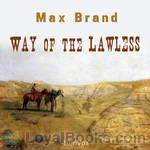 Way Of The Lawless
Way Of The Lawless
Young Andrew Lanning made one mistake in the beginning, and now the most feared lawman in the mountain desert, Hal Dozier, is on his trail and will stop at nothing to bring the outlaw Lanning to justice. But is Andrew guilty of all the things he is being accused of? There is one, a pretty young girl, who doesn't believe all she hears about him. Again, Max Brand shows us why he is the master of the pulp western. (Introduction by Richard Kilmer) | |
 The Seventh Man
The Seventh Man
The Seventh Man by Max Brand, tells part of the story of the larger-than-life western character, Dan Barry, known as “Whistling Dan,” and his alter-ego companions, Black Bart, the wolf-dog, and Satan, the indomitable black stallion. It’s also the story of Kate Cumberland and the incredible five-year-old daughter of Kate and Dan, Joan. We first see Dan as a gentle, caring man with a deep sense of fairness. But then, after six years of a peaceful life in their mountain cabin Dan, more feral than human, sets out to revenge an injustice by killing seven men... | |
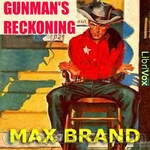 Gunman's Reckoning
Gunman's Reckoning
A typical early 20th century western. It's a tale of a tough guy who gets involved with an evil man with an angel daughter for whom the tough guy falls. His efforts to recover hers and her father's gold mine claims is the story. Not a lot of shoot em up but enough story to make one want to finish the book to see how things work out. (Introduction by Charles Montgomery) | |
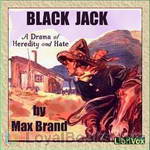 Black Jack
Black Jack
The son of a notorious outlaw is adopted into a wealthy, law-abiding family as an infant after his father is killed in an attempted robbery. Will he follow in the footsteps of his outlaw father or will his life be guided by the respectable woman who nurtured him to manhood? Another exciting tale by the master of the pulp western, Max Brand. | |
 Rangeland Avenger
Rangeland Avenger
If you enjoy a fast moving western dealing with vengeance and well-deserved payback, you'll like The Rangeland Avenger by Max Brand. A soft spoken but ruthless gunman cuts a path of deadly payback across the Wild West in this exciting adventure. | |
 Bull Hunter
Bull Hunter
Bull Hunter was a man who could rip a tree trunk from the ground with his bare hands or tame the wildest stallion with his kind manner. But Pete Reeve didn't have the reputation of a dead shot because he relied on his common sense. Then Bull and Pete crossed paths, and townsfolk braced for the battle. | |
 Garden of Eden
Garden of Eden
Ben Connor is a gambler who knows horses. He goes out west to get away from the gambling life he has been leading in New York. There he discovers a breed of grey horses that he thinks are the best horses he has ever seen. The problem is that these horses are bred in a secret valley known as the Garden of Eden and that outsiders are not welcome there. Connor sees these horses as a means of getting rich on the race tracks, but how to get one is a problem. A great horse story coupled with the typical excitement one expects from Max Brand makes this a great book. | |
By: Anne Brontë (1820-1849) | |
|---|---|
 The Tenant of Wildfell Hall
The Tenant of Wildfell Hall
An epistolary novel, The Tenant of Wildfell Hall follows the courageous journey of the protagonist, Helen Graham, as she struggles to escape her socially imposed role as dutiful wife, while also acting on her moral responsibilities as a mother and self-respect as a woman. Published in 1848, under the pseudonym Acton Bell, the novel provoked much criticism at the time of its release due to its shocking content and atypical portrayal of an English wife, who not only defies the strict conventions of society, but also consciously violates the law that legally represses the rights of women... | |
By: Theron Q. Dumont (1862-1932) | |
|---|---|
 The Power of Concentration
The Power of Concentration
Though he wrote more than 100 books during his lifetime, Theron Q Dumont is largely a forgotten entity today. In fact, Theron Q Dumont is not even his real name. It is a pen-name adopted by William Walker Atkinson, an American polymath, who began his career as a grocer's assistant in nineteenth century Baltimore, studied law and went on to amass fame and fortune as a successful legal luminary. However, disaster struck when he suffered a nervous breakdown due to over strain and he lost everything that he had earned... | |
By: Lord Dunsany (1878-1957) | |
|---|---|
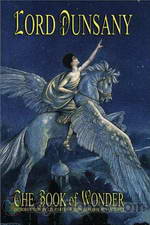 The Book of Wonder
The Book of Wonder
“Come with me, ladies and gentlemen who are in any wise weary of London: come with me: and those that tire at all of the world we know: for we have new worlds here.” – Lord Dunsany, the preface to “The Book of Wonder” | |
 Time and the Gods
Time and the Gods
Lord Dunsany (24 July 1878 – 25 October 1957) was a London-born Anglo-Irish writer and dramatist notable for his work in fantasy. He was influenced by Algernon Swinburne, who wrote the line “Time and the Gods are at strife” in his 1866 poem “Hymn to Proserpine”, as well as by the fairy tales of the Brothers Grimm and Hans Christian Andersen. In turn, Dunsany’s influence was felt by H. P. Lovecraft and Ursula K. Le Guin. Arthur C. Clarke corresponded with Dunsany between 1944 and 1956. Those letters are collected in the book Arthur C. Clarke & Lord Dunsany: A Correspondence. Time and the Gods, a series of short stories written in a myth-like style, was first published in 1906. | |
By: Thomas Hobbes (1588-1679) | |
|---|---|
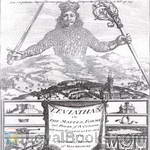 Leviathan, or The Matter, Forme and Power of a Common Wealth Ecclesiasticall and Civil
Leviathan, or The Matter, Forme and Power of a Common Wealth Ecclesiasticall and Civil
Books 1 and 2. Leviathan, or The Matter, Forme and Power of a Common Wealth Ecclesiasticall and Civil is a book written in 1651 by Thomas Hobbes. The book concerns the structure of society (as represented figuratively by the frontispiece, showing the state giant made up of individuals). In the book, Hobbes argues for a social contract and rule by a sovereign. Influenced by the English Civil War, Hobbes wrote that chaos or civil war – situations identified with a state of nature and the famous motto bellum omnium contra omnes (”the war of all against all”) – could only be averted by strong central government... | |
By: Paul Laurence Dunbar (1872-1906) | |
|---|---|
 The Sport of the Gods
The Sport of the Gods
The Sport of the Gods is a novel by Paul Laurence Dunbar, first published in 1902, centered around urban black life.Forced to leave the South, a family falls apart amid the harsh realities of Northern inner city life in this 1902 examination of the forces that extinguish the dreams of African Americans. | |
By: Joseph Bédier (1864-1938) | |
|---|---|
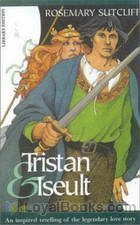 Tristan and Iseult
Tristan and Iseult
He is a divinely handsome young man, valiant and fiercely loyal to his uncle who adopted and nurtured him from the time he was an abandoned orphan. She is the ethereally beautiful princess of a faraway country, betrothed to the middle-aged uncle. They meet when the young man is sent as an emissary to her country to bring her back for the grand wedding. On board the ship, the two fall tragically in love. Tristan and Iseult by Joseph Bedier is a retelling of an ancient legend which has been popular... | |
By: Lew Wallace (1827-1905) | |
|---|---|
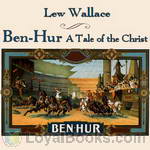 Ben-Hur: A Tale of the Christ
Ben-Hur: A Tale of the Christ
Ben-Hur is a story of two very different heroes. Judah Ben-Hur, a prince of Jerusalem, is involved in an accident to the Roman procurator which is taken to be intentional. He is seized and sent to the fleet as a galley-slave, while his family is imprisoned and the family goods confiscated. When Ben-Hur saves the fleet captain from drowning after his ship is sunk in a fight with pirates, that officer adopts him as son and heir. With Roman training, Ben-Hur distinguishes himself in the arena and the palistrae and appears to be on the way to high military command... | |
By: Upton Sinclair | |
|---|---|
 The Jungle
The Jungle
Originally crafted as a scathing expose of the Chicago meatpacking industry of the early twentieth century, The Jungle by American journalist and author, Upton Sinclair, was based on his investigative work into the dark underbelly of capitalism in the country. Throughout his entire career, he wrote passionately about the inhuman conditions that lay behind the glittering facade of free market economics. Jurgis Rudkus is a Lithuanian immigrant. The novel opens on his wedding day to the lovely young Ona Lukoszaite... | |
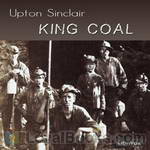 King Coal
King Coal
King Coal is a book by Upton Sinclair, first published in 1917, that exposes the dirty working conditions in the coal mining industry in the western United States during the 1910s. As in an earlier work, The Jungle, Sinclair expresses his socialist viewpoints from the perspective of a single protagonist, Hal Warner, caught up in the schemes and plots of the oppressive American capitalist system. The book itself is based on the 1914-1915 Colorado coal strikes.Reader’s note: In Book 4, there is no chapter numbered Section 16 in the public domain Gutenberg e-text. However, no actual text from the book appears to be missing. | |
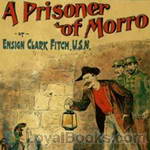 A Prisoner of Morro
A Prisoner of Morro
Upton Sinclair, born in 1878 was a Pulitzer Prize-winning American author. He wrote over 90 books in many genres. Best known for his muckraking novel, The Jungle, Sinclair also wrote adventure fiction. Many of these works were written under the pseudonym, Ensign Clark Fitch, U.S.N. A Prisoner of Morrow, published in 1898 when Sinclair was but 20 years old, is one of these efforts. The period for this work is the ten-week Spanish–American War which occurred in 1898. Revolts against Spanish rule had been prevalent for decades in Cuba and were closely watched by Americans... | |
 The Moneychangers
The Moneychangers
A story of white collar crime and intrigue told from the point of view of Montague, a member of the privileged class of New York. Montague witnesses the manipulation and upset of the stock market by high financier Dan Waterman who is motivated by revenge. Waterman's character is loosely based on J.P. Morgan. | |
 The Profits of Religion
The Profits of Religion
The Profits of Religion: An Essay in Economic Interpretation is a non-fiction book by the American novelist and muckraking journalist Upton Sinclair, first published in 1917. It is a snapshot of the religious movements in the U.S. before its entry into World War I. In this book, Sinclair attacks institutionalized religion as a "source of income to parasites, and the natural ally of every form of oppression and exploitation." | |
 100%: The Story of a Patriot
100%: The Story of a Patriot
"100%:The Story of a Patriot" dramatically recounts the adventures of a poor uneducated young man who lives by his wits and guile, as he becomes politicized during his involvement in the sometimes violent struggle between American “patriots” and “Reds”. The author wrote in the Appendix, which is not included in this recording: "Everything that has social significance is truth.... Practically all the characters in "100%" are real persons." This exciting, polemical novel was published in 1920... | |